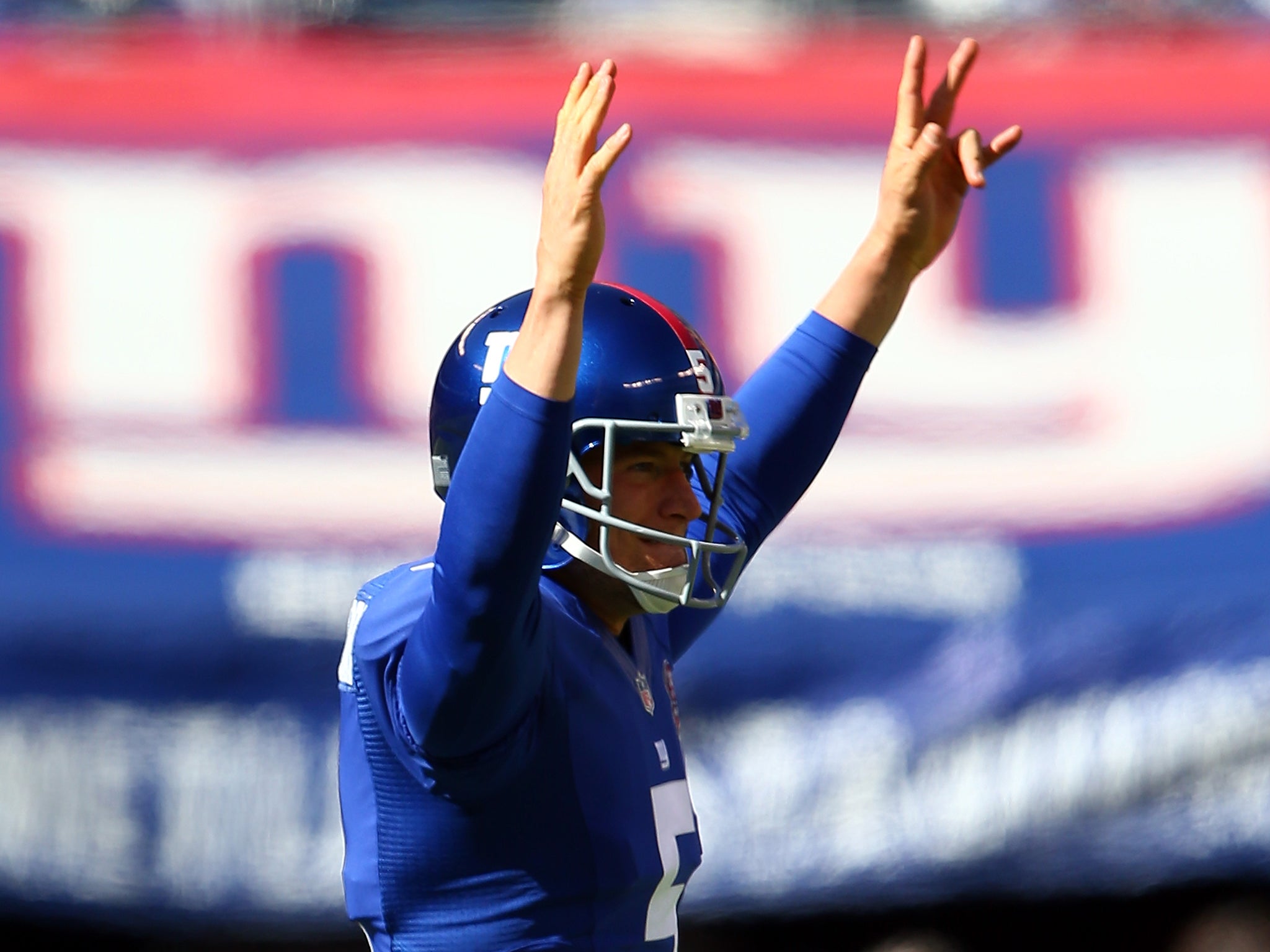NFL players to donate their brains after death: Steve Weatherford and Sidney Rice make pledge to help medical research
The long-term effects of playing American football have become an increasing concern

Your support helps us to tell the story
From reproductive rights to climate change to Big Tech, The Independent is on the ground when the story is developing. Whether it's investigating the financials of Elon Musk's pro-Trump PAC or producing our latest documentary, 'The A Word', which shines a light on the American women fighting for reproductive rights, we know how important it is to parse out the facts from the messaging.
At such a critical moment in US history, we need reporters on the ground. Your donation allows us to keep sending journalists to speak to both sides of the story.
The Independent is trusted by Americans across the entire political spectrum. And unlike many other quality news outlets, we choose not to lock Americans out of our reporting and analysis with paywalls. We believe quality journalism should be available to everyone, paid for by those who can afford it.
Your support makes all the difference.New York Giants punter Steve Weatherford and former National Football League receiver Sidney Rice announced yesterday that they will donate their brains to medical research after their death.
Rice, who retired from the NFL last July at the age of 27 over worries about the long-term effects of absorbing so many blows to the head, and Weatherford hoped their commitment might mobilize others to aid brain disease research.
"It's helpful to get a professional athlete behind something," said Weatherford. "This is something that has affected Sidney and affected me in the form of one of my dear friends, Junior Seau, committing suicide."
Seau, a 12-time Pro Bowl linebacker, died after shooting himself in the chest in 2012 at age 43. A study of Seau's brain revealed that he suffered from chronic traumatic encephalopathy, or CTE, a debilitating brain condition caused by repeated jolts to the head that can lead to aggression and dementia.
High incidence of degenerative brain disease in former players led thousands of NFL alumni to press for and win a settlement with the league over future health costs that could end up costing $1 billion.
"A lot of my teammates and a lot of close friends have dealt with concussions and the depression that comes with that," said Weatherford.
"There's a lot of issues that stem from brain injuries and it's not just professional athletes. This affects everybody."
Rice and Weatherford made a joint announcement to coincide with Brain Injury Awareness Month.
Rice, who estimated he had incurred between 15 and 20 concussions playing football starting at age eight, said it was only right to try and make a difference.
"I had my fair share of fun in the NFL." said Rice, a Super Bowl-winning receiver with the Seattle Seahawks last year.
"Unfortunately, I wasn't educated enough on (what) concussions can lead to. The brain studies by the doctors will be huge to help, maybe prevent."
Both Rice and Weatherford said they thought the NFL had taken positive steps to address the dangers of repetitive blows to the head but that more needed to be done.
"You can always get your knees replaced or your hip replaced or repaired, but you only get one brain," said Weatherford.
Join our commenting forum
Join thought-provoking conversations, follow other Independent readers and see their replies
Comments